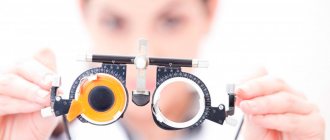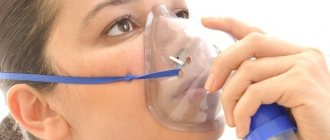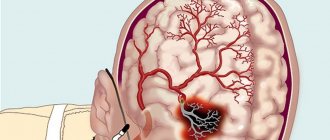What are hormones and where are they produced?
Hormones are substances that are produced in the body in special glands in very small quantities, but have a significant impact on the functioning and interaction of all organs.
Not a single biological process can occur without their participation. Testosterone is a hormone that is produced in the testicles, in special Leydig cells. In the testicles, sperm production also occurs in another type of cell - Sertoli cells. The coordinated work of these two types of cells ensures normal sexual and reproductive function in men.
The process of formation of testosterone (as well as other hormones) is under the control of the central nervous system, namely the pituitary gland - an organ the size of a pea, but whose role is enormous - it is a kind of conductor of the hormonal orchestra of the whole body. The production of testosterone is regulated by the so-called luteinizing hormone (doctors simply call it LH).
Reasons for increased testosterone in the female body
The hormone testosterone in women is increased: the reasons for this can be very diverse, but the main place among them is given to:
- hormonal disorders in the body;
- taking certain medications;
- unbalanced and unhealthy diet of women;
- vegetarian lifestyle - absence of meat and fish in the diet;
- presence of a tumor in the body;
- heredity;
- pregnancy status;
- menopause;
- ovulation.
What effect does testosterone have on the male body?
The man has not yet been born, and in the seventh week of his stay in the womb, the male sex glands - the testes - are already forming. Another two weeks - and the testes begin to produce testosterone. During the transition period (13-17 years), the boy's testosterone secretion increases sharply, and he gradually turns into a man. How does this happen?
Firstly, under the influence of testosterone, the normal development of a man’s genital organs occurs - the penis, testicles, prostate gland (which, in fact, distinguishes him from a woman) as well as the appearance of so-called secondary sexual characteristics - hair growth on the face and body, characteristic hair growth pubic area.
Body structure: Testosterone promotes the formation of protein in body tissues, primarily in muscles, the growth and development of strength of which is proportional to the amount of testosterone (think about athletes who take “anabolic steroids” in order to have developed muscles). Testosterone is involved in the normal distribution of fat in the body.
In addition, this hormone affects the formation and normal maturation of bone tissue; thanks to testosterone, bone growth zones close in time. The condition of the skin is also directly related to testosterone, since the sebaceous glands function under its influence. Thus, a man’s appearance depends entirely on the amount of testosterone.
The lower timbre of a man’s voice is also the result of testosterone; it is with its participation that the vocal cords thicken during puberty.
Another extremely important function of testosterone is its influence on sexual activity and sexual behavior . Testosterone affects certain areas of the brain, leading to the appearance of sexual desire (libido), not only in men, but also in women.
Normal erection is also ensured with the active participation of testosterone: it has been proven that under its action, complete relaxation of the corpora cavernosa occurs, testosterone contributes to normal blood supply to the vessels of the penis.
Undoubtedly, sexual function and physical development determine a man’s well-being and attitude. However, the role of testosterone is not limited to this. In fact, there is not a single organ system that is not influenced to some extent by testosterone.
The cardiovascular system:
- promotes dilation of coronary vessels
- slows down the process of atherosclerosis
- prevents the development of cardiac hypertrophy in arterial hypertension
- reduces symptoms of coronary heart disease
Urinary system:
- prostate condition
Hematopoiesis: Testosterone affects the maturation of red blood cells (erythrocytes) in the bone marrow.
Central nervous system: Testosterone affects the following processes:
- attention, memory and speed of thinking
- mood (a large amount of testosterone promotes aggressive behavior, a low amount - on the contrary, causes depression)
- spatial orientation
- pronounced antidepressant effect
So testosterone “is what really differentiates men and women, testosterone literally shapes our creativity, intelligence, way of thinking, energy, desire to understand things. It influences and controls not only the potential we possess, but also the benefit we derive from it. It controls our sexual and communicative behavior” (Anna Moir “The Brain of the Sexes”).
How does testosterone deficiency manifest?
The effects of testosterone on the body are described above, respectively, deficiency can manifest itself in various symptoms, the most common are:
- depression
- decrease in concentration
- fatigue
- decreased muscle mass and strength
- decreased sexual desire
- erectile dysfunction - problems with developing and maintaining an erection
- infertility caused by a decrease in sperm count
- osteoporosis (cause of brittle bones)
- tides
- reduction in size and soft consistency of the testicles
- anemia (low red blood cell count)
- reduction in prostate size
Why can a man's testosterone levels be reduced in adulthood?
It has been established that testosterone levels in men begin to gradually decline from about the age of 30, by 1-2% every year. As a result, by the age of 50-55 (and in some cases even earlier), the testosterone content can be only about 1/2 of its amount at a young age. In addition, with age, the amount of a special protein in the blood that binds sex hormones increases, which also leads to a decrease in biologically active testosterone. A condition called age-related hypogonadism .
The amount of testosterone in adulthood and old age also depends on genetic (congenital) factors, such as the sensitivity of body tissues to the action of testosterone.
Various diseases of internal organs have an important impact on testosterone levels.
Low testosterone - treatment
Is there a need to treat low testosterone? Most studies of testosterone treatment indicate improvements in libido and sexual function in men with hypogonadism or low levels of male hormones. Researchers note that the therapy increases interest in sexual relations and increases the number of spontaneous erections. However, testosterone therapy may not improve erectile dysfunction if the underlying causes are not hormonal imbalance.
In addition to its effects on the sexual sphere, testosterone treatment improves mood, relieves symptoms of depression, fatigue and confusion. Research also shows a positive effect on bone density.
Over the past decade, interest in testosterone hormone therapy has increased dramatically. Various forms of this substance are available: short and long-term injections, oral preparations, patches and gels.
Testosterone pills are the most widely available, but urologists and endocrinologists usually do not recommend taking them. In this form, testosterone is quickly metabolized and cannot reach the required level in the blood. In addition, the use of testosterone in this form can cause dangerous side effects - liver dysfunction, including benign and malignant tumors.
Testosterone therapy
How do testosterone gels and patches work? Testosterone patches, although more expensive, are a convenient alternative to injections due to ease of use and maintenance of normal testosterone levels.
There are two methods of delivering testosterone through the skin: patches that are attached to the skin or in the scrotal area, and gels that are rubbed into the skin. Both options provide a constant supply of testosterone, which is absorbed through the skin and gradually released into the blood. But these options will only be effective at a certain level of testosterone, so you must first get tested and only then select a treatment method.
What diseases can lead to testosterone deficiency?
In addition to physiological factors, acute and chronic diseases and medications can lead to hypogonadism, which ultimately increases the age-related decrease in testosterone levels.
Among diseases of internal organs, low testosterone levels can be caused by:
- chronic obstructive pulmonary disease, bronchial asthma
- cardiac ischemia
- arterial hypertension
- diabetes
- obesity
- cirrhosis of the liver
- chronic alcoholism
Reasons for decreased libido
Various sexual disorders, including decreased desire, often arise as a consequence of chronic diseases. Diseases take away energy, lower tone and negatively affect a man’s libido. In addition, a sharp decrease in libido may have the following causes:
1. Mental disorders, depression, neuroses and post-traumatic conditions, etc.
2. Overwork, both physical and mental.
3. Taking certain medications, for example, antidepressants.
4. Alcohol or drug abuse.
5. Injuries to the genital organs.
6. Long-term abstinence and irregular sex life.
7. Age.
Sexual desire can also be affected by a man’s emotional mood at the moment, which is formed under the influence of weather, environment and other factors. But it is necessary to talk about a serious problem if the thirst for intimate relationships has been absent for a long time.
How do medications affect testosterone and sexual function?
Medicines taken for various diseases can negatively affect the level of testosterone in the blood. Therefore, self-administration of medications is unacceptable; only a doctor can prescribe treatment for you, taking into account possible adverse effects on sexual function.
What kind of medicines are these:
1. used for high blood pressure:
- methyldopa
- clonidine
- reserpine
- β-blockers (atenolol, anaprilin)
- prazosin
2. diuretics:
- veroshpiron
- hypotazid
- chlorthalidone
3. affecting the heart:
- digoxin
- verapamil
- antiarrhythmic drugs
4. affecting the central nervous system:
- antidepressants
- sleeping pills
- amphetamines
5. affecting the gastrointestinal tract:
- cerucal
- ranitidine
How is testosterone level determined?
To find out what kind of testosterone you have, you need to take a blood test in the morning (preferably between 7 and 11 o'clock), since it is in the morning that the testosterone content in the blood is maximum. In addition, other special tests are needed - determination of the level of LH, protein that binds sex hormones, as well as a number of other tests that the doctor will prescribe based on the results of the examination.
At the same time, testosterone deficiency can be suspected by clinical symptoms. Several special questionnaires and scales have been developed for this purpose. By answering a few questions, you can guess whether testosterone is low or not.
How to increase libido
To increase a man’s sexual desire, first of all, you need to understand the reasons for the decrease in libido. This can only be done by a specialist based on the examination results.
There are several ways to increase libido:
• drug treatment is aimed at eliminating diseases that lead to decreased libido. As you recover, sexual desire will increase again.
Hormone therapy allows you to normalize testosterone levels, which affect libido. The doctor may also prescribe vitamins, herbal medicines and stimulants;
• psychotherapeutic methods will help correct mental disorders if the causes of decreased libido in men are psychogenic in nature;
• psychorelaxing methods are used for neuroses, excessive fatigue, sleep disorders;
• tonic procedures. A contrast shower or therapeutic massage will help increase libido.
You need to make an appointment with a specialist immediately after alarming symptoms are noticed. You should not try to treat sexual disorders on your own, but you can try changing your lifestyle and diet.
Often the reasons for decreased libido and potency should be sought in a sedentary lifestyle and abuse of fatty foods. All this leads to obesity and loss of desire to have sex.
Androgen level rating scale
1. Do you notice a decrease in sexual desire (decreased pleasure from sex, lack of desire for sexual contact)? 2. Have you become less energetic? 3. Have you noticed a decrease in physical strength and endurance? 4. Has your height decreased? 5. Are you about (the feeling that the peak of life has been passed)? 6. Have you become sad and/or irritable? 7. Do you notice a decrease in the quality of erections? 8. Have you noticed a recent decline in your ability to participate in sports? 9. Do you fall asleep after lunch? 10. Has your performance decreased?
Testosterone deficiency is possible if the answer to questions 1.7 or any three other questions is positive.







